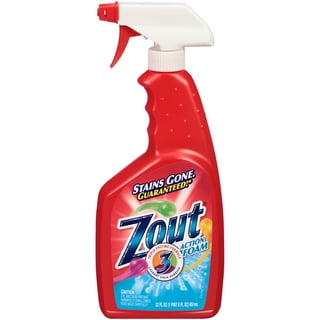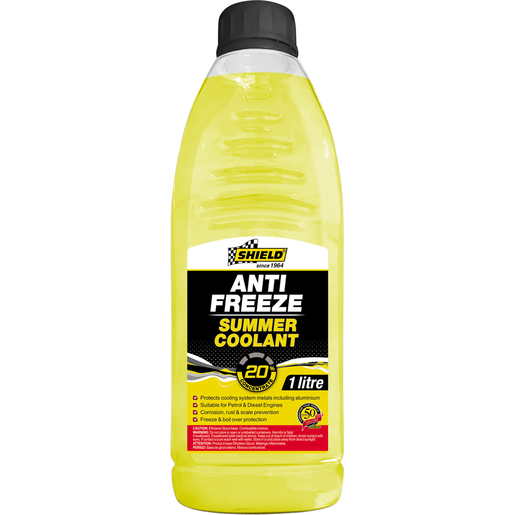To remove antifreeze from clothes, promptly flush the fabric with cold water, then pre-treat with a stain remover before laundering. Soak the garment in a bucket of cold water and detergent for at least one hour.
Removing antifreeze from clothing can be a challenging task, yet it is essential to act quickly to prevent staining or damage to the fabric. Spills from vehicle maintenance or winter preparations can lead to these accidents. Effective cleaning hinges on immediate action—thoroughly rinse the garment to dilute the antifreeze’s chemicals.
Pre-treating the area with a commercial stain remover or a mixture of baking soda and water can help lift the stain. After pre-treating, wash the item on the highest temperature setting that the fabric can safely handle, using a heavy-duty laundry detergent. Always check the care label for guidance on proper handling. Having these quick-response tips at hand helps ensure that your clothes can be saved from potential permanent damage.

Credit: www.amazon.com
Introduction To Antifreeze And Its Challenges
Antifreeze, commonly found in car engines, often leads to stubborn stains on clothes. The stains can be tricky to identify, typically presenting as colorless or light yellow marks. Their chemical composition makes the stains difficult to remove, binding closely with the fabric. Due to the ethylene glycol or propylene glycol in antifreeze, these stains can resist regular washing methods. Acting fast is crucial, as the longer they sit, the harder they are to clean. Our routine laundry products might not suffice to tackle these stains. Seeking specific cleaning agents and techniques is therefore essential for adequate removal. Remember, safety comes first; always use gloves and proper ventilation when dealing with antifreeze.

Credit: www.walmart.com
Immediate Actions To Combat Antifreeze Stains
Act quickly after noticing an antifreeze stain on clothing to prevent it from setting. Gently blot the affected area with a clean cloth to absorb excess antifreeze. Avoid rubbing as it can push the chemical deeper into the fabric.
Next, rinse the stained section under cold running water. Doing this dilutes the antifreeze and minimizes its impact on the fabric. Continue rinsing for several minutes to ensure the chemical concentration is reduced as much as possible before further cleaning.
Pre-treatment Techniques For Antifreeze Marks
Accidents with antifreeze can stain clothes with tough marks. Immediate action is crucial for removing stains. Start by rinsing the fabric with cold water. This stops the stain from setting. Choose a stain remover carefully. Options include pre-treat sprays, gels, or sticks. Always read the product label before application to ensure it’s safe for your fabric.
Homemade solutions are effective and easy to make. A mixture of dish soap and vinegar works well. Another option is a paste of baking soda and water. Apply your chosen mixture directly to the stain. Allow it to sit for a few minutes. Next, gently scrub with an old toothbrush. Then, wash the garment as usual. Check the stain has gone before drying, as heat can set it permanently.
Learn about Charcoal Out of Clothes
Laundry Basics: Washing Antifreeze-stained Clothes
Selecting the right detergent is crucial for removing antifreeze stains from clothes. Opt for a heavy-duty laundry detergent that contains enzymes. Enzymes break down the antifreeze, making it easier to wash away. Use the recommended amount specified for heavily soiled garments. Avoid detergents that are simply labeled as ‘color-safe’ or ‘gentle’; these might not be strong enough to tackle the antifreeze.
Optimizing wash cycle settings also plays a significant role in stain removal. Set your washing machine to the longest cycle with a pre-soak option, if available. Use hot water to enhance the detergent’s effectiveness, but first, check the garment’s care label to ensure it can handle the heat. A second rinse cycle can remove any lingering residue. Assess the stain post-wash and repeat the process if necessary before drying.
Advanced Cleaning Tactics For Stubborn Stains
Removing antifreeze stains from clothes can be challenging. Solvents play a crucial role in this task. A common method involves applying a solvent-based stain remover directly to the affected area. Gently dab the stain with a clean cloth. Avoid rubbing as this can spread the antifreeze further. Repeat the process if necessary until the residue is no longer visible.
The temperature of the water used impacts the effectiveness of cleaning. Cold water is best for rinsing the garment after treating with solvent. Hot water may set the stain, making it harder to remove. After rinsing, launder the clothing as you normally would, but avoid mixing with non-contaminated clothes to prevent cross-staining.

Credit: www.amazon.com
Aftercare And Prevention: Maintaining Clothing Post Cleanse
Inspect your clothes after the wash for any leftover antifreeze marks. Bright light helps to spot residual stains. If stains linger, repeat the cleaning process until no traces remain. It is crucial to ensure all antifreeze is removed to avoid skin contact.
For future safety, store antifreeze in a secure location. Wear old clothing while handling chemicals to minimize risk. In case of spills, act quickly to remove antifreeze. Keep a cleaning kit nearby with materials like baking soda and liquid dish soap.
Frequently Asked Questions On How To Get Antifreeze Out Of Clothes
Can You Wash Clothes That Have Antifreeze On Them?
Yes, washing clothes with antifreeze on them is possible. Begin by pre-rinsing with cold water to eliminate excess antifreeze. Utilize a heavy-duty detergent with the highest safe water temperature for the fabric. Prior to drying, inspect for stains and rewash if needed. Ensure proper disposal of the used water.
Can You Remove Antifreeze Stains?
Yes, you can remove antifreeze stains. Start by blotting the excess with a clean cloth. Apply a mixture of dish soap and warm water, scrub gently, then rinse with cold water and dry. Regular laundering may also help diminish the stain.
Can You Wash Antifreeze?
No, you cannot wash antifreeze as it is a hazardous chemical. Dispose of it properly at a local waste facility or recycling center.
Does Glycol Wash Out Of Clothes?
Yes, glycol can wash out of clothes. Prompt washing with detergent and warm water is usually effective in removing it. Always check the garment’s care label for instructions.
Can Vinegar Remove Antifreeze From Fabric?
Vinegar, a natural solvent, can help in breaking down antifreeze in clothes. Apply it directly to the stain, let it sit, then wash as usual.

Conclusion
Dealing with antifreeze stains can be daunting, but it’s manageable with the right steps. Act swiftly, use suitable cleaning agents, and always prioritize safety. Remember, regular washing methods seldom suffice for these stubborn spots. For fresh, clean clothes free of antifreeze, follow the guidance shared in this post.
Embrace these tips for hassle-free laundry care.


